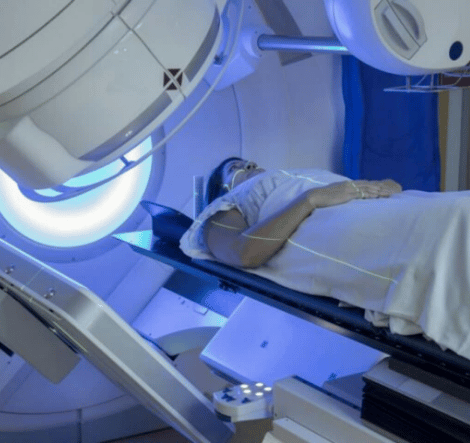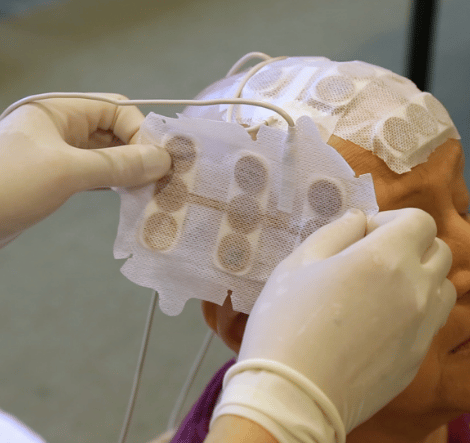Mesothelioma Treatment
Home » National Mesothelioma Law Firm » Mesothelioma Cancer » Mesothelioma Treatment
Life-Extending Treatment for Mesothelioma
Tumor-removing surgery

Extrapleural pneumonectomy (EPP)
This is the most invasive procedure used for pleural mesothelioma and involves removing the pleura (the membrane around the lung) along with the lung itself and other tissues on the affected side.

Pleurectomy/decortication (P/D)

Cytoreductive surgery (CRS)y
To be candidates for tumor-removing surgery, patients usually need to be in a relatively early stage of cancer. Patients who have the sarcomatoid cell type are generally not considered candidates, as studies have not shown a survival benefit for surgery in these patients. In addition, patients must be in good general health to consider surgery, as these are very invasive procedures.
Chemotherapy
There are various ways that chemotherapy may be used to treat mesothelioma. The most common chemotherapy drug combination used for mesothelioma is pemetrexed, along with either cisplatin or carboplatin.


Adjuvant chemotherapy

Neoadjuvant chemotherapy

Intraoperative chemotherapy
- Hyperthermic intraperitoneal chemotherapy (HIPEC) combined with CRS is the standard treatment for peritoneal mesothelioma in eligible patients. When combined with CRS, 5-year survival rates have been reported to be as high as 44%.
- More recently, hyperthermic intrathoracic chemotherapy (HITHOC) has been used successfully in pleural mesothelioma.

Standalone chemotherapy
Chemotherapy doesn’t have to be combined with surgery. Some patients receive chemotherapy on its own. For those who aren’t candidates for surgery, chemotherapy is generally the mainstay of treatment in both pleural and peritoneal mesothelioma.
Radiation therapy
After surgery, radiotherapy may be used to target cancer cells that may have been left behind. It can also be used in those who aren’t eligible for surgery. The most common type is external beam radiation therapy (EBRT), which targets cancer cells using X-rays. Multiple weaker beams of X-ray radiation are aimed at the tumor from different angles.
At the site of the tumor, the beams cross, delivering a significant dose of radiation to that area. Other areas receive far less radiation, which reduces this mesothelioma treatment’s side effects. Other types of radiation therapy exist but are rarely used for mesothelioma.


Immunotherapy
Immunotherapy is a treatment modality that uses the body’s own immune system to destroy cancer cells. The FDA has approved two immunotherapy treatments (Keytruda and Opdivo plus Yervoy) for use in certain mesothelioma patients.
Cancer cells may alter the function of certain proteins in order to evade the immune system; these immunotherapy agents restore normal function of these proteins in order to allow the immune system to target the mesothelioma cells.
Tumor-Treating Fields (TTF)
This is one of the newest treatment options, and was FDA-approved in 2019 for the treatment of patients with unresectable malignant pleural mesothelioma. It uses alternating electrical currents passed through the skin to disrupt the ability of the cancer cells to divide and grow, and is approved for use in combination with chemotherapy.
Use of this device has been shown to increase median survival from 12 months to about 18 months, with very few side effects caused by the device. Patients with resectable cancers are still treated with surgery, but TTF can be used by patients for whom surgery is not an option.

Complementary and Alternative
Medicine (CAM) for Mesothelioma
In addition to these treatments, some patients choose to try alternative mesothelioma treatments. These types of treatment are not a replacement for conventional oncology and surgery but may be used to help with symptom control and comfort. Some options might include:

Acupuncture

Transcutaneous electrical nerve stimulation (TENS)

Mindfulness

Herbs and supplements

Patients who are considering using any type of complementary or alternative treatment should definitely discuss this with their cancer care team. Certain CAM treatments, such as supplements, can interact with conventional treatments for mesothelioma, so it’s crucial that your team is aware of everything that you’re doing. In addition, patients with a history of addiction should be aware of the potential effects of substance use disorder on mesothelioma treatment.
Clinical Trials

Photodynamic therapy (PDT)
The side effects are minimal, since the drug will not be exposed to light and activated in other parts of the body. This does need to be combined with surgery to be effective, but is a promising new treatment option.

Gene therapy

Immunotherapy
Isn’t entirely experimental anymore, as two forms of immunotherapy are now FDA-approved for treating mesothelioma. Research is still ongoing to discover new types of immunotherapy that may be more effective.

There are also some clinical trials testing existing treatments, such as surgery, chemotherapy, and radiation therapy, in order to discover the best treatment combinations and the ideal timing for each.
Some patients choose to participate in a clinical trial. The biggest advantage is that you might get early access to a novel treatment with the potential to extend your life. However, although these new treatments are considered very promising, there’s no guarantee that they’ll work better than the existing treatments do.
If you’re considering participating in a clinical trial, we recommend talking it over with your oncologist so you can discuss the pros and cons of participating. Your oncologist can also help you to determine which clinical trials you may be eligible for. You can try searching the National Cancer Institute’s database of current clinical trials for your type of mesothelioma to see if there are any that you’d like to consider.
Treatment Centers
Mesothelioma treatment generally involves several different specialists, including medical oncologists, cancer surgeons, radiation oncologists, and others. In order to have access to all of the specialized care that you need, it’s often best to receive your treatment at a mesothelioma cancer center.
Because mesothelioma is a relatively rare malignancy, most doctors have seen few, if any, cases of it. At a cancer center, you’ll have access to experts in this specific type of cancer. You can even seek out specific doctors who are experts in your type of mesothelioma.
The National Cancer Institute’s database of cancer centers is a good place to start looking for centers. Some patients prefer to choose a center that’s located near their home, while others are willing to travel to receive their treatment from the top experts in the field.


Treatment Cost
The cost of mesothelioma treatment can add up quickly. Even for patients with Medicare and/or private medical insurance, the deductibles and co-pays for cancer treatment can quickly become hard to manage. Cancer patients may also want to take advantage of complementary therapies that insurance doesn’t cover, adding to the cost. Financial assistance for mesothelioma treatment may be available but it is limited.
Asbestos exposure is the only known risk factor for mesothelioma, and the majority of cases are linked to exposure to asbestos. Unfortunately, many companies did not adequately protect their workers from asbestos exposure on the job, even after the dangers of asbestos were known.
If your mesothelioma was caused by asbestos exposure at work, then you may be eligible for a financial settlement that could help pay for your treatment.
By submitting this form, you agree to our terms & conditions. Please read full disclaimer here.




